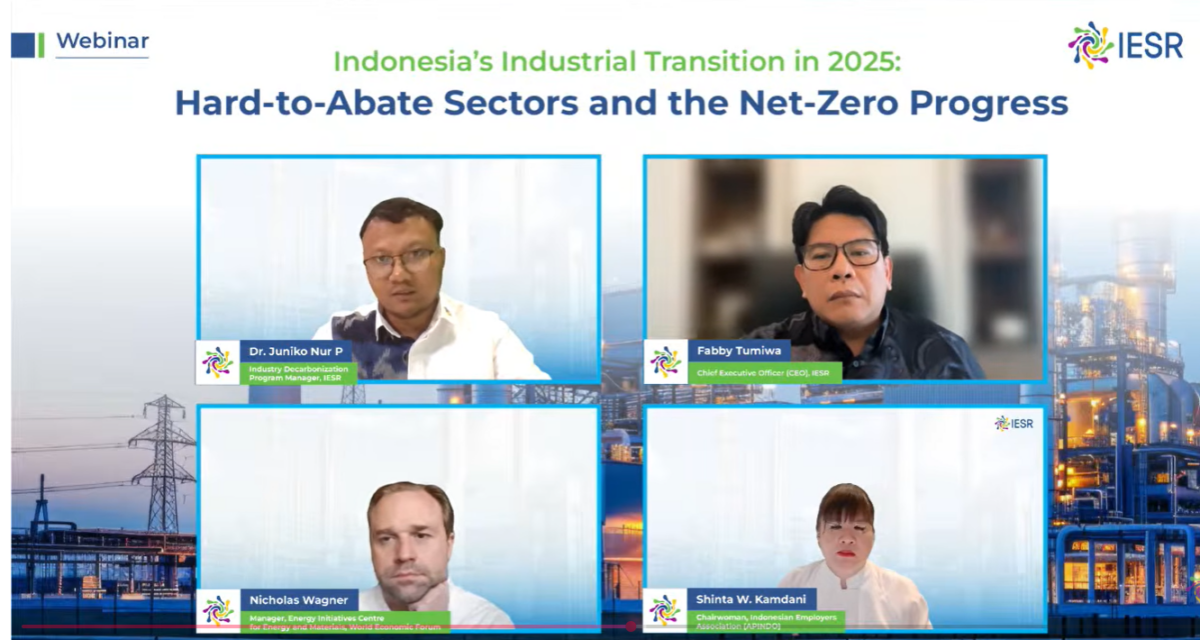
Global Industrial Decarbonization Progress Leaves Developing Countries Behind
Jakarta, 29 Januari 2026- A report by the World Economic Forum (WEF) shows that despite increasing efforts to improve energy efficiency and expand the use of re... Read more.
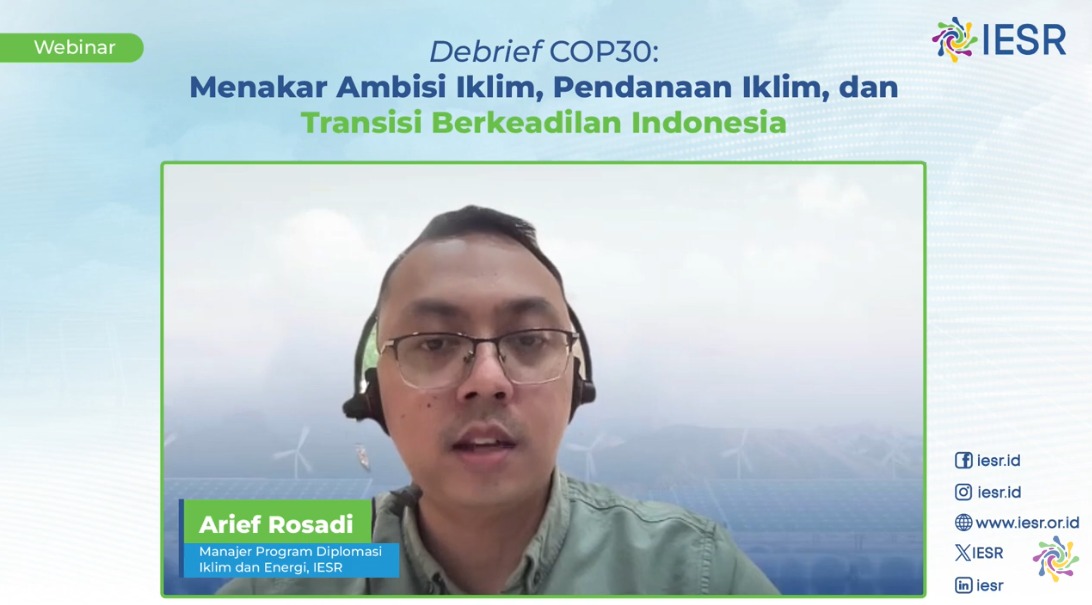
IESR: Indonesia Needs to Strengthen Climate Action Post-COP30
Jakarta, 8 December 2025 – The 30th UN Climate Change Conference (Conference of Parties, COP30) in Belém, Brazil, officially concluded on Saturday (22/11... Read more.
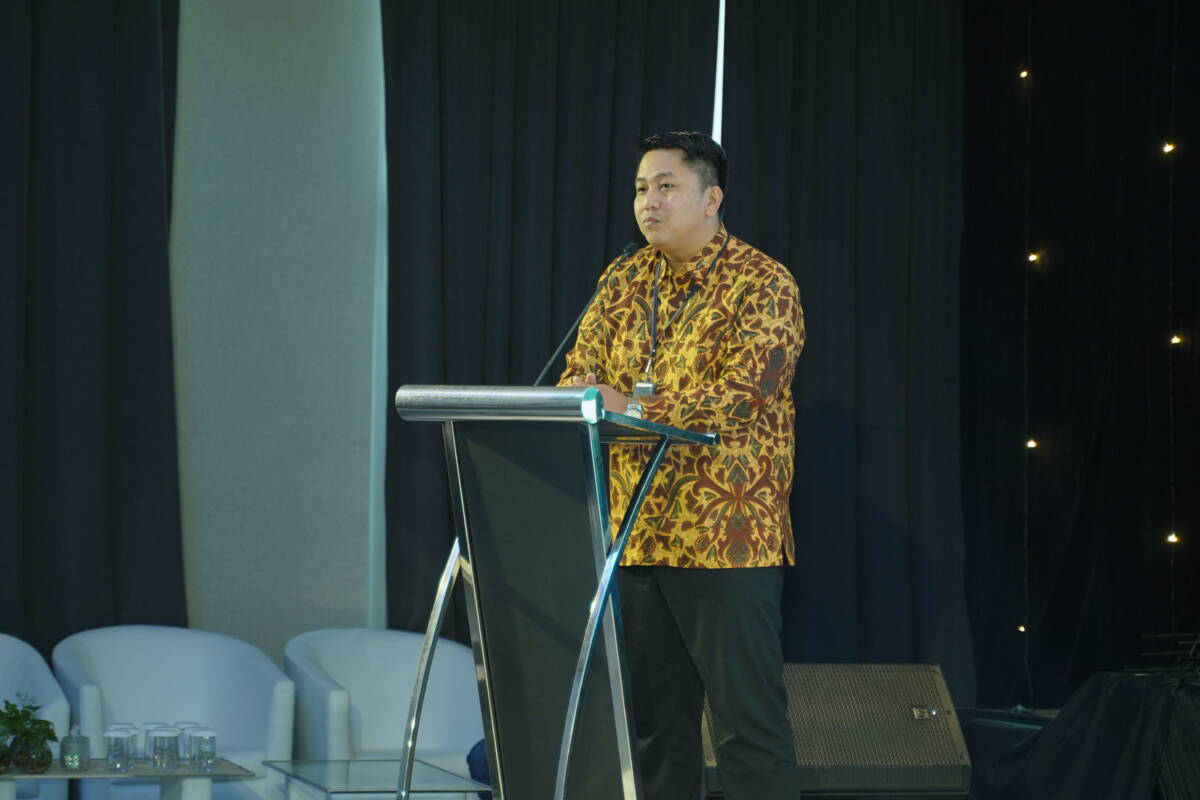
Reducing the Dominance of Captive Coal-Fired Power Plants to Strengthen Long-Term Competitiveness
Jakarta, December 5, 2025 – The Institute for Essential Services Reform (IESR) notes that the world is rapidly shifting toward a low-emission economic sys... Read more.

Retreat from Early CFPP Retirement Risks Stalling Indonesia’s Green Energy Transition
Jakarta, December 4, 2025 – Although Indonesia has issued the Ministerial Regulation of the Energy and Mineral Resources (MEMR) No. 10/2025, which should regu... Read more.
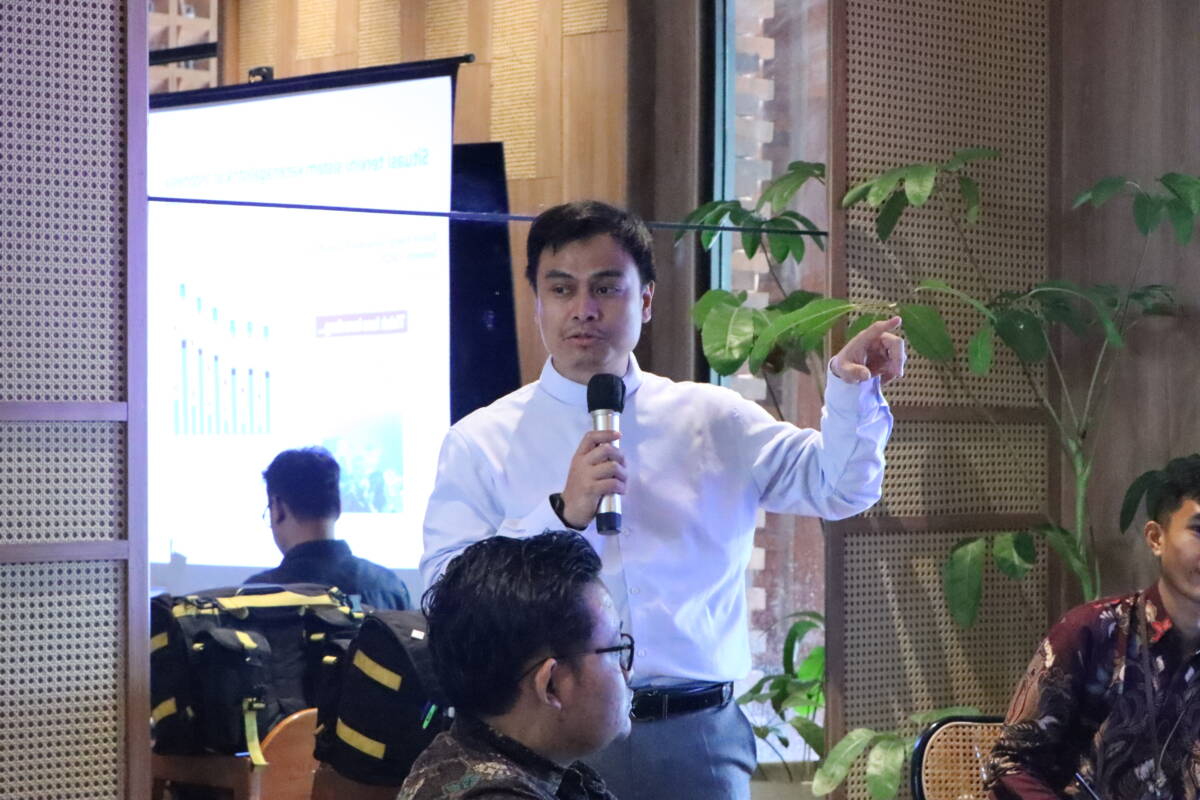
Commencing the Retirement of Coal-Fired Power Plants through Flexible Operations and Renewable Energy Utilization
Jakarta, November 27, 2025 – Indonesia has imposed restrictions on the development of new coal-fired power plants as part of its commitment to achieving n... Read more.
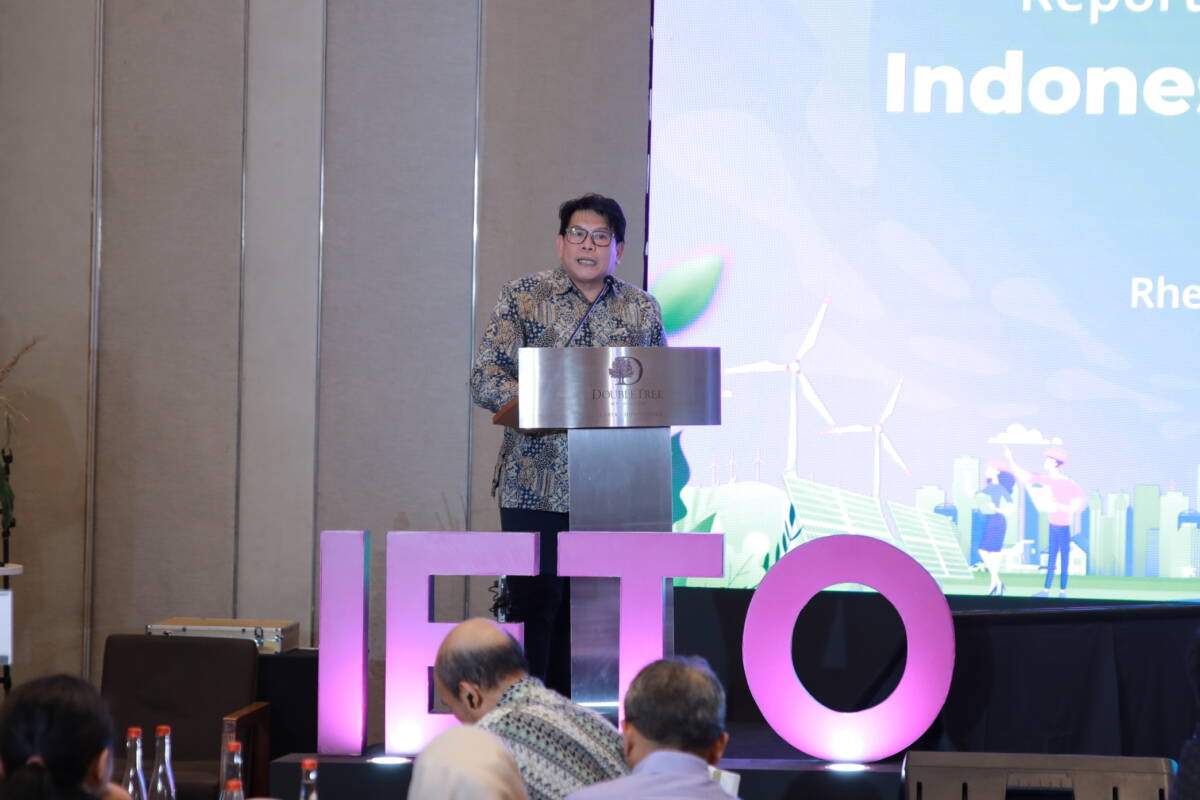
Rising Emissions Overshadow Ambition for 8 Percent Economic Growth
Jakarta, November 20, 2025 – By the end of 2025, Indonesia’s energy transition remains largely rhetorical and continues to fall short of its stated goal... Read more.

Coal Regulation Rollback Risks Economic Growth
Jakarta, November 14, 2025 – The government is currently drafting amendments to Presidential Regulation (Perpres) No. 112 of 2022 on the Acceleration of R... Read more.
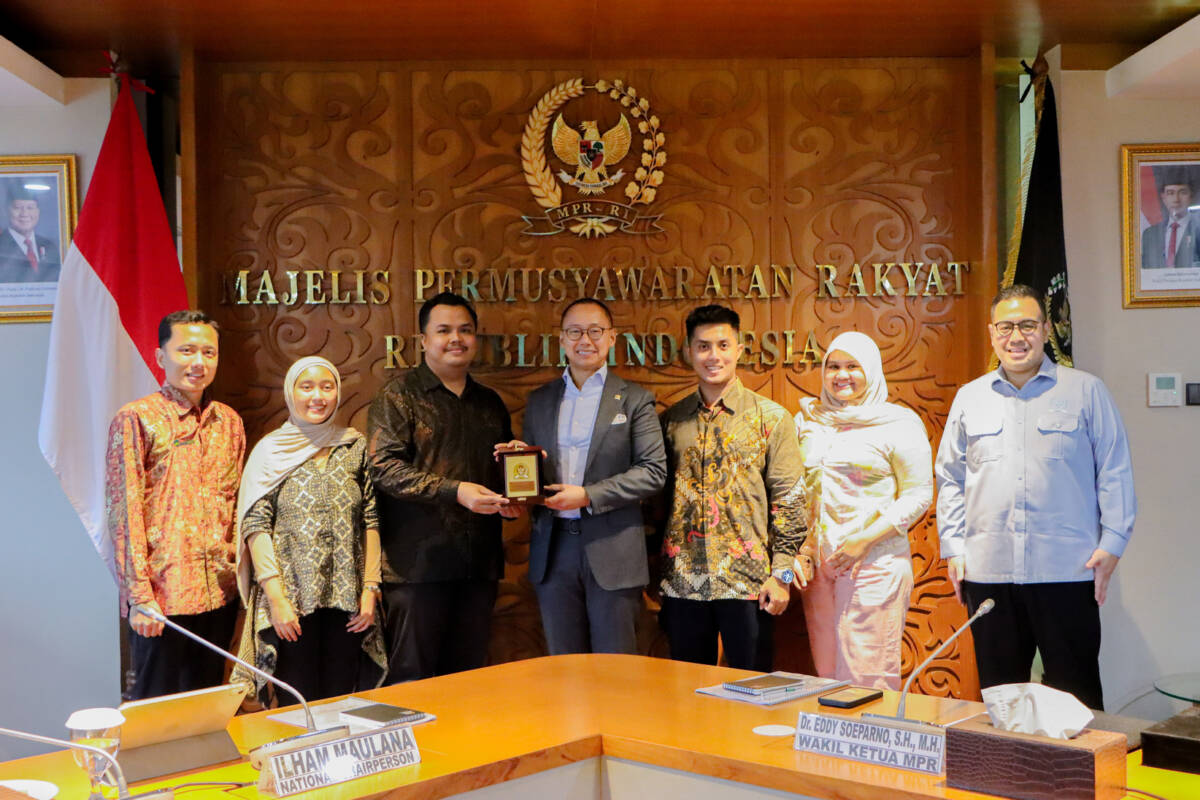
Meet with the Indonesian People’s Consultative Assembly: Young People Bring Clean Energy Ideas
Jakarta, 31 October 2025 — The Clean Energy Generation (Gen-B) civil society movement held a meeting with Deputy Chairman of the Indonesian People’s Consult... Read more.
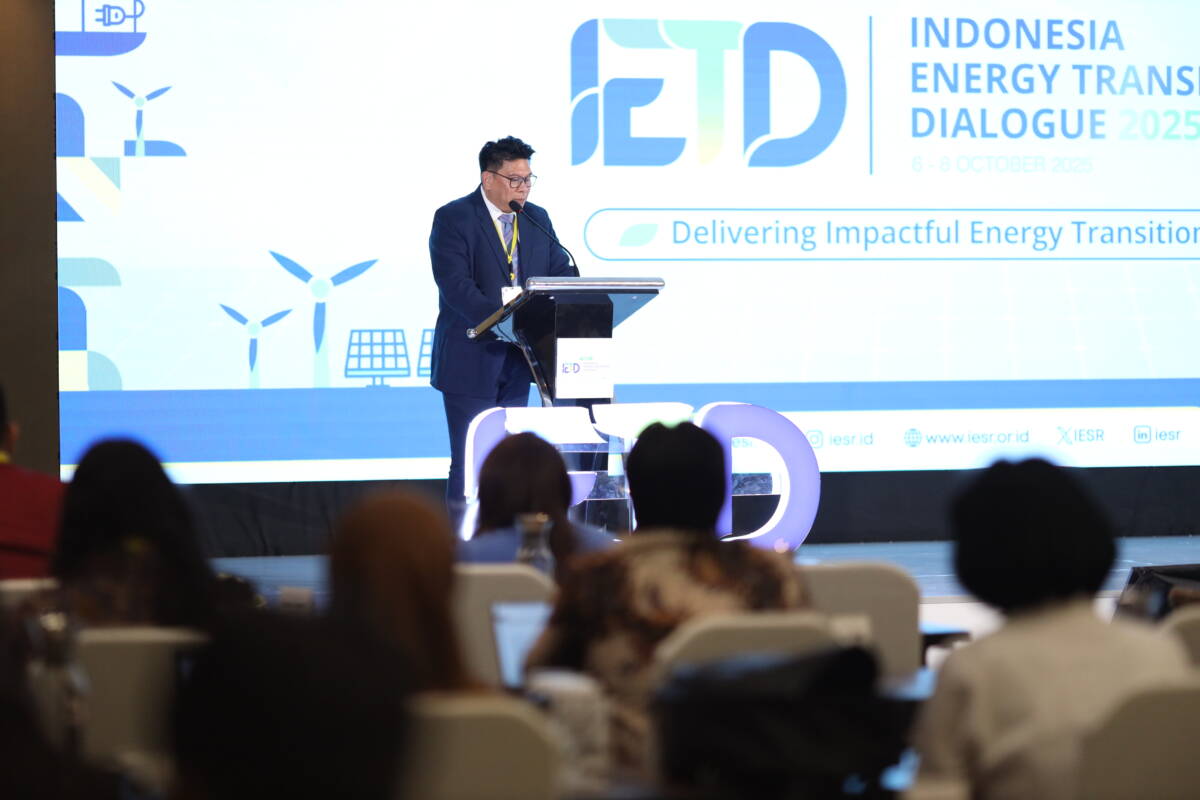
Towards COP30: Indonesia’s SNDC Fails to Reflect President Prabowo’s 100% Renewable Energy Ambition
Jakarta, October 29, 2025 – Indonesia has submitted its Second Nationally Determined Contribution (SNDC) document to the United Nations Framework Conventi... Read more.
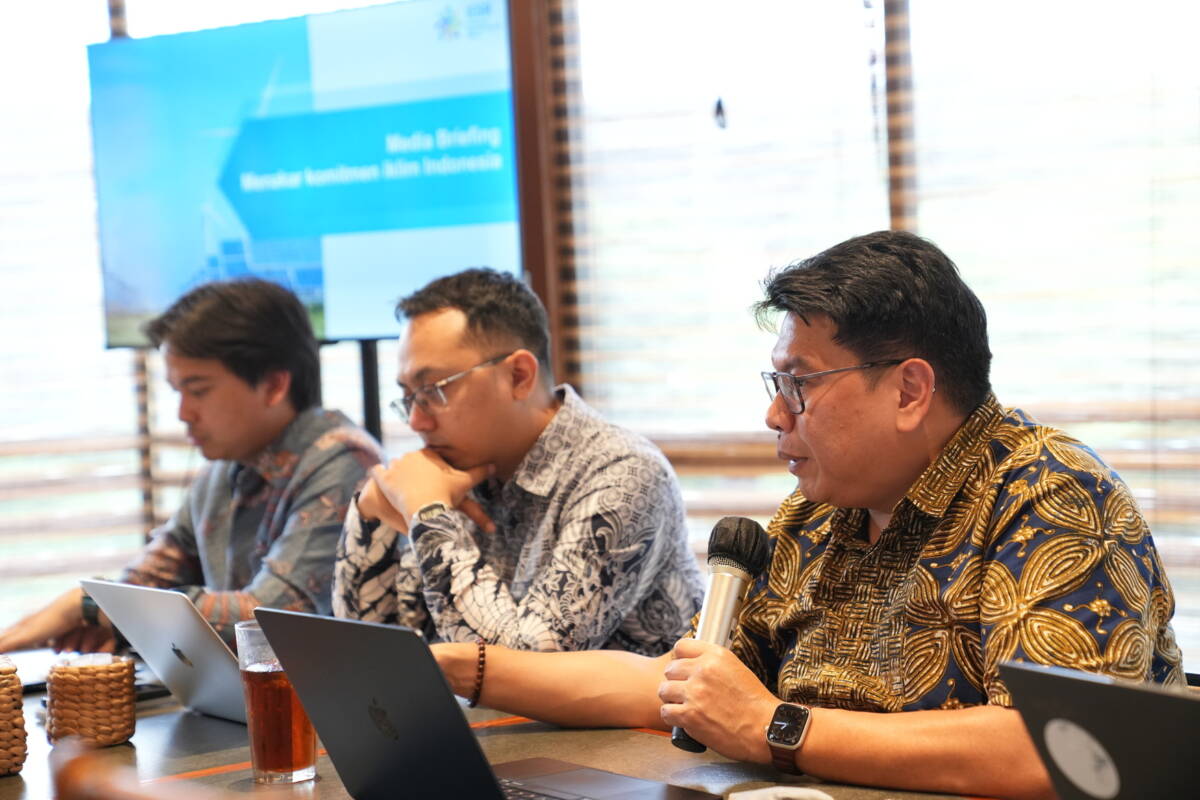
Draft NDC 3.0 Fails to Show Targets and Actions that Respond to the Climate Crisis
Jakarta, October 20, 2025 – Hot temperatures and weather anomalies are currently hitting various regions in Indonesia. Although considered a seasonal phenomen... Read more.

